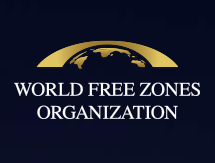Tempo de leitura: 3 minutos
THE ongoing “Two Sessions,” the annual gathering of China’s top legislative and political advisory bodies, have shed light on the expansion of the Shanghai free trade zone pilot area. Answering questions put online, Chen Jingying, a Shanghai delegate to the National People’s Congress, said the expansion wasn’t just an increase in geographical space.
Instead, the goal is to better serve significant national development strategies as well as the country’s comprehensive reform and opening-up efforts. Chen’s remarks were in response to heated talk surrounding the would-be location and size of the expanded pilot area.
A guessing game is in full swing since President Xi Jinping encouraged Shanghai to expand its FTZ pilot area in a speech at the opening ceremony of the first China International Import Expo last year and after Vice Mayor Wu Qing dropped hints in November that the planned new area would be “much bigger than the current one.”
The pilot area has almost quadrupled its size since its inception in 2013, having grown from a 28.78-square kilometer strip of land to some 120 square kilometers. According to Chen, the pilot area’s trajectory has deviated from the traditional resource-intensive development model.
Instead, a barrage of unprecedented measures has been devised to facilitate trade and stimulate institutional innovation in areas including finance, law and administrative management.
To sustain the momentum, she suggested authorities continue to enlarge the scope of innovation. This could, in her view, include institutional support for multinationals to relocate their headquarters to Shanghai or undertake major projects locally, among others, but she did not elaborate.
She also emphasized enhanced intellectual property protection and called for setting higher standards and rules governing global investment and trade.
Many things have happened in the days after President Xi delivered his speech. The efficiency with which city officials have rolled out policies to further liberalize trade and investment for foreign businesses has impressed the global business community.
Elon Musk, founder and chief executive of Tesla, is said to have expressed admiration for what he called “Shanghai speed.” In January, he picked up a shovel and broke ground for a mega-factory in the Pudong New Area, six months after Tesla signed the deal to become the first foreign car maker to be allowed to build a wholly-owned plant rather than form joint ventures, which used to be the norm.
Beneficiaries of simplified bureaucratic procedures are myriad. Companies such as Tesla are invariably lured by easier market access. L’Oreal, a cosmetics giant, reportedly has had many of its lipsticks removed from the 2-month-long official review process. As a result, they hit the market within five working days of their arrival. This change has led the company to practically time their local marketing campaigns with global launches of new products. Indeed, the maturity of the FTZ is an outgrowth of spontaneous dismantling of bureaucratic mechanisms that undermine efficiency.
To loosen straitjackets for businesses, the FTZ negative list has been shortened four times from a peak of 190 areas off-limits to foreign companies to comprise only 45 such areas at present.
Zhou Hanmin, deputy chairman of the Shanghai People’s Political Consultative Conference, said the point of expanding the FTZ pilot area in Shanghai at a time when there are 12 FTZs all over China, is to align Shanghai FTZ with the highest global standards. His argument coincides with Mayor Ying Yong’s claims that “Shanghai’s new FTZ pilot area should emulate the most competitive peers of global recognition.”
In a March 4 article, the mobile news app Shanghai Observer opined that the Shanghai FTZ should proactively explore a set of trade rules tailored not just to local conditions, but also to the preferences of developing countries participating in the Belt and Road Initiative.
It is hoped that the expanded pilot area will be a platform for experimenting with bolder reforms, in intellectual property protection, e-commerce and financial liberalization, so as to unleash dividends from China’s new round of reform and opening up, the article said.






Os comentários foram encerrados, mas trackbacks e pingbacks estão abertos.